Bryna Turner and Lee Sunday Evans Unearth Buried Queer History in Bull in a China Shop
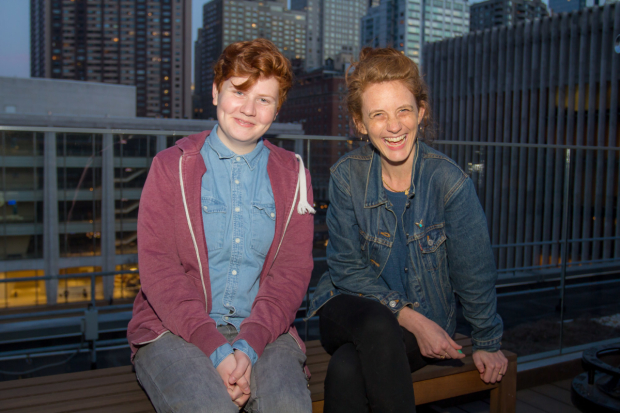
(© Seth Walters)
Playwright Bryna Turner makes her professional theatrical debut with Bull in a China Shop, now playing at LCT3's Claire Tow Theater. The new play follows real-life lesbian suffragettes Mary Woolley (Enid Graham) and her partner, Jeannette Marks (Ruibo Qian). In the early 1900s, the pair lived and worked together at Mount Holyoke Female Seminary, where Woolley was president and Marks headed the English department.
"I was completely blown away by everything they managed to do, and thought it could make a great play," said Turner during a recent sit-down with TheaterMania and her director, Lee Sunday Evans. "And then I tried to write it and it was very, very boring and old timey and I thought, 'Oh, this is awful.' So I just sort of put it away."
When Turner did finally pull the play back out of its drawer, she was compelled to do so by the confluence of two events: the Democratic primaries and a personal heartbreak. "This idea of revolution and reform was weighing very heavily on me," she recalled, "and all of that felt really present tense." Bull in a China Shop ended up blending Woolley and Marks' actual history with a storytelling form that utilizes modern language and a contemporary structure.
"I just found the structure of this play to be really thrilling," said director Evans. "I really like plays that are telling stories in unusual ways."
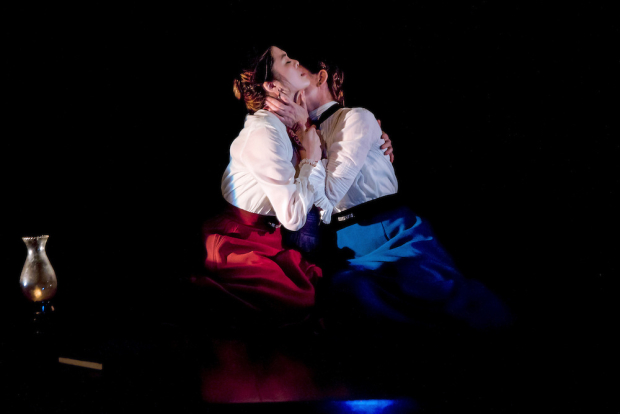
(© Jenny Anderson)
What was your research process like for this production?
Lee: What's amazing is there's all these beautiful letters between Woolley and Marks. You can read all of them online so I spent a bunch of time reading those letters and a bunch of time researching what women's education was like in the 1800s and early 1900s — because when I first encountered the play I didn't understand what a women's seminary was. The idea that the only kind of education that would be acceptable for women to partake in would be religious education, is something I didn't really know, so I got really interested in the idea of what women's education meant practically, in terms of what kinds of things it afforded women and what it didn't — how it was really about being a breeding ground to kind of become a better, more eligible wife.
What elements of this story originally drew you in?
Bryna: Woolley and Marks were together for forty years, and that was profound to me. Long-term relationships, especially between same-sex couples in a time period that we don't often hear about them existing, are very compelling to me. And the circumstances of their relationship: Marks was Woolley's student at Wellesley. Woolley was her religion professor, and then they were friends, and then they fell in love, and then it was like, "You have to come with me to Mount Holyoke. I can't go without you," like very dramatic. And then she comes a year later and Woolley pretty quickly sets her up as the head of the English department. I thought that was just so funny and strange. It was her former student, she had taken over a school, and it was the turn of the 20th century, when nobody's even really able to talk about the gay thing, let alone cool with it — they didn't have the language for it.
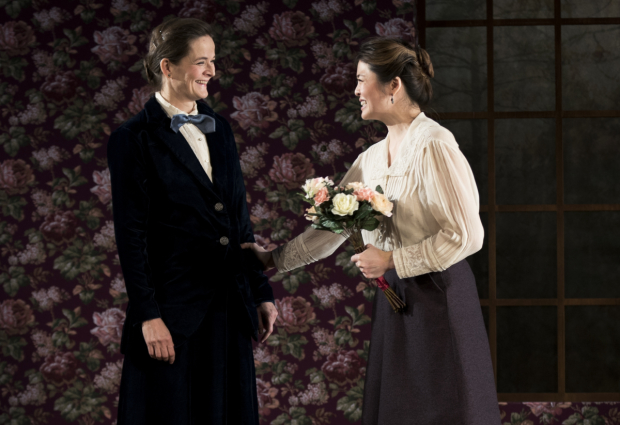
(© Jenny Anderson)
What is your goal in juxtaposing modern language with a historic story?
Bryna: I feel like these stories aren't really told — both stories about women and stories about queer people — so there's a way that we don't know our history. And so to actually show us something that in a way is very like what's happening now is a way of showing the distance that we haven't come. I guess that's what I was hoping to get at with the language.
Lee: So much of our culture in the United States is about being really scared of our history. We really like to hold our history at arm's length and I'm sort of obsessed with the idea of, "How you can tell historical stories in a way that makes them feel really immediate?" So I was attracted to the way that this play doesn't have that kind of arm's-length feeling.
Are there any details of their story that you learned in your research that you wish had made it into the play?
Bryna: There's only one detail that we just couldn’t quite fit realistically, although we do say it in there — but it's the literalness of [Woolley's] climbing three flights of stairs to kiss Miss Marks goodnight. I just love that idea that they lived in the same building, but she was in the president's suite in the first floor and Marks had to live in faculty housing three floors up. And there's just something about that image.
Lee: I was going to say the same thing. The students lived on the second floor [laughs] so she had to pass the second floor where all the students live, to the third floor which is the faculty dorms, and then walk down past the students back to the president's suite.
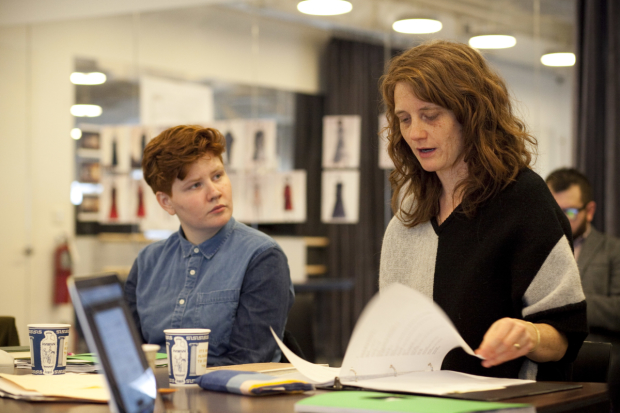
(© Chasi Annexy)
Bryna: So inappropriate and strange on so many levels, but also so endearing.
How is writing a play about real people different from writing completely fictional story?
Bryna: There is this way in which I feel like it captures a life much better than if I had just like sat down and been like, "And then what happens?" There were these obstacles and they're so profound and relatable because they were real.
Lee: I feel like it is a really kind of joyful, bighearted way of telling a real love story. There's something deep at the spiritual core of doing that that is different. It infuses everything about the play.
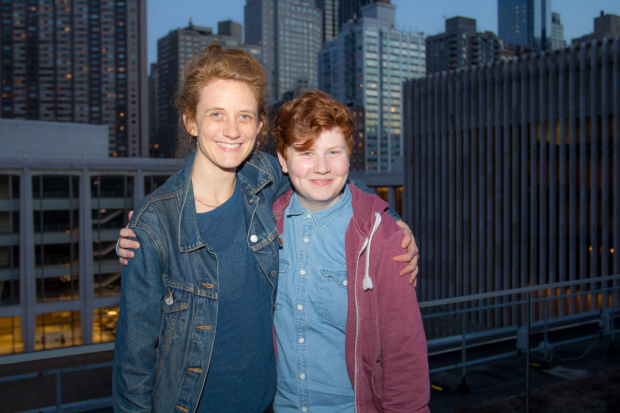
(© Seth Walters)











